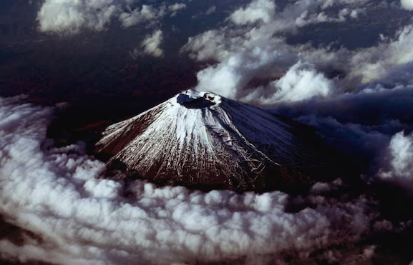Mount Fuji Records Latest Snowless Date in History
Japan’s iconic Mount Fuji has yet to receive its first snowfall of the season. This is unprecedented, marking the latest date without snow since records began in 1894. The previous record was October 26, noted in 1955 and 2016. This year, warm weather has delayed the formation of the snowcap.
Historical Snow Patterns
Mount Fuji typically sees its first snow around October 2. Last year, the snow appeared on October 5. The absence of snow this year marks an important shift in weather patterns. The snowcap is essential for the mountain’s ecosystem and is a key feature for climbers and tourists.
Weather Influences
Yutaka Katsuta, a forecaster, attributes the delay to persistently high temperatures. Summer 2024 was among the hottest on record, matching the extreme heat of 2023. This prolonged warmth has continued into September, preventing the cold air needed for snowfall.
Climate Change Impact
Experts suggest that climate change may be influencing these unusual weather patterns. The rising global temperatures contribute to the warmer conditions experienced in Japan. Such changes can disrupt traditional seasonal weather, including snowfall.
Tourism and Mount Fuji
Mount Fuji is a popular destination, attracting over 220,000 hikers during the July to September climbing season. Many climbers ascend through the night to witness the sunrise from the summit, which stands at 3,776 meters (12,388 feet). However, this year, visitor numbers dropped due to new regulations.
Regulations on Climbing
To combat overtourism, Japanese authorities introduced an entry fee and a daily cap on climbers. These measures aim to protect the mountain’s environment and enhance the visitor experience. The changes have led to fewer climbers attempting the ascent this year.
Cultural Significance
Mount Fuji holds immense cultural value in Japan. It has been depicted in countless artworks, most famously in Hokusai’s “Great Wave.” The mountain is not just a natural wonder but also a symbol of Japan’s heritage and artistic history.
Volcanic Activity
Mount Fuji last erupted approximately 300 years ago. Since then, it has been a dormant volcano. The long period without eruptions contributes to its status as a safe hiking destination, although monitoring continues for any signs of activity.
Environmental Considerations
The delay in snowfall raises concerns about the environmental impact on the mountain. Snow plays a vital role in maintaining the ecosystem. Without it, the flora and fauna that depend on seasonal changes may be affected.
The situation at Mount Fuji reflects broader climate trends observed globally. As temperatures rise, the implications for weather patterns and natural landmarks will become increasingly. Continued monitoring and research will be essential in understanding these changes.
Month: Current Affairs - October, 2024
Category: Important Days & Events Current Affairs








